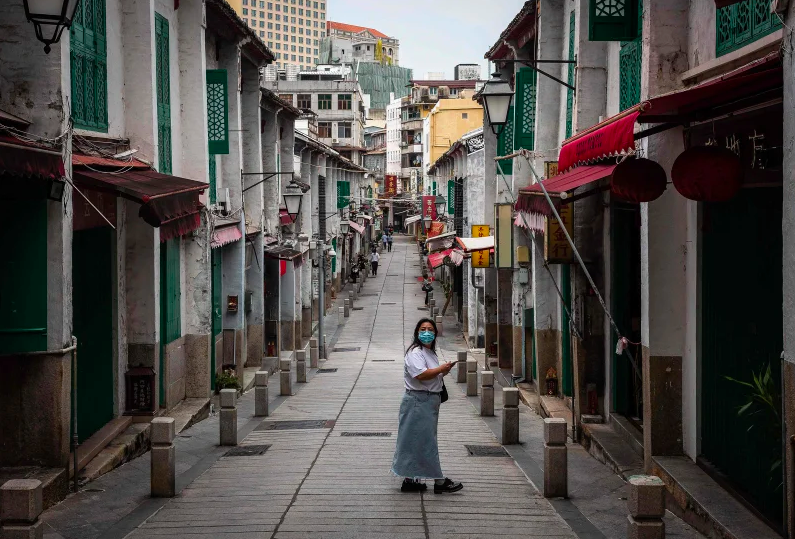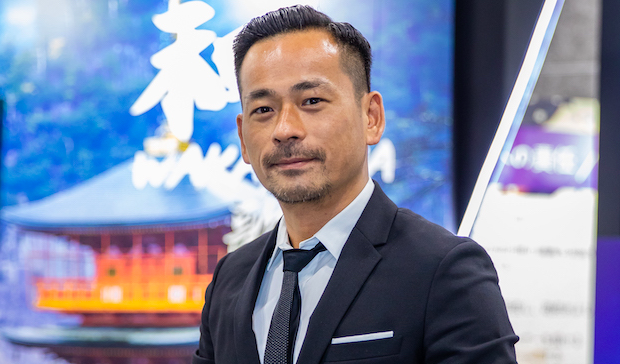The COVID-19 pandemic has impacted Asia’s Gambling Capital, Macau, in a very suffocating way. The past years of having sporadic measures on lockdowns and travel restrictions have taken their toll on the business. The throngs of people are not seen and numerous hotels and casinos have finally closed shop. Gaming tables are empty and entire sections of some casinos are shut down due to a lack of traffic and business.

Andrew W. Scott, vice chairman and CEO of Inside Asian Gaming, a Macau-based gambling magazine summed it up succinctly, “Gaming was practiced in Macau long before 1849 … so it’s in the DNA of the place and when that gets taken away it makes Macau, frankly, an empty shell of what it used to be.”
Table gaming and slots made more than 141.5 billion patacas ($17 billion) in revenue for Macau before the pandemic.
Another wave of challenges is now happening in Macau, this is China’s new push to diversify the semi-autonomous Chinese region’s economy away from gambling. It has also clamped down on illegal gambling establishments as well as perceived illegal activities by personalities in the casino industry.
Considering that 80% of Macau’s tax revenue comes from gambling, this additional predicament has locals and experts worrying that the Macau they knew just a scant three years ago will never be able to recuperate and be back on the scene as Asia’s Gambling Mecca.
Glorious Macau in the recent past: Gambler’s Haven
Macau was a Portuguese colony and this was also when its gaming history began. The 16th century saw how labourers and other folks gambled as a pastime. Makeshift stalls then came popping up in streets to accommodate and tap into a lucrative venture. By 1847, Macau’s Portuguese government officially legalized gaming and taxed its revenues.

By 1999, Macau’s gaming landscape flourished after control was handed back to China. MGM, Wynn and Las Vegas Sands entered the scene in 2002 when the city opened up its gaming sector to multinational companies. By 2006, Macau became the world’s largest gaming market.
With only a land area of 32 square kilometers and around 680,000 residents, Macau was able to generate revenues six times that of Las Vegas. In 2019, it brought in USD36 billion.
The largest chunk of revenue was coming from junkets and high-rolling bettors — including China’s state officials. VIP gamers garner 43% of the earnings channeled through junkets. These junkets were packages that are organized by operators who can offer luxury accommodations and travel to even provide loans to play with.
Tightening grip of Covid19 and Suncity’s Alvin Chau takedown
Since the start of the turnover from Portuguese rule to China, Beijing and Macau have been clashing in their differences and way of life. In the mainland, gambling has been officially illegal since 1949. This rule didn’t apply to Macau until 2012. This move was triggered by the junket’s repute and this included state officials in the game. Xi Jinping launched a strict anti-corruption campaign.
Hence, by 2020, Xi began his “common prosperity” principle of egalitarianism. This has been used to rein in how the wealthiest make and spend their money. They saw gambling as responsible for 1 trillion yuan ($147 billion) leaving China’s economy.
The tipping point came when last November the arrest of Alvin Chau — head of the city’s biggest junket operator, Suncity Group Holdings — was arrested and hit with more than 200 charges involving illegally operating casinos, money laundering and running a criminal syndicate. Furthermore, the warrant cited that Chau was arrested for he has “severely damaging the social order of the country.”

Chau’s arrest is a big deal as it affects, “the way gambling has always been done” expressed Hao Zhidong, a University of Macau professor emeritus who writes on the city’s history and culture.
Since Chau’s arrest, the government has banned all dedicated junket rooms in casinos. Casino operator licenses have been halved from 20 years to 10 years while also being subject to review every three years. This also included that operators invest in local talent as well as initiatives outside of gaming, like green technologies, finance or entertainment.
You might also want to read: Kazuo Okada stands his ground: Pleads Not Guilty
Major obstacles to economic diversification
The recent decisions of China show how its aim for Macau is to stop relying on gambling as the lone source of income, livelihood and growth. China is intent on seeing results at a fast pace and on a grand scale to diversify the industries that Macau has.
It will have to work on several major hurdles that can be a huge challenge for the planned transformation. The first one to overcome would be the limited space Macau has. To augment this, on September 2021, China offered 106 square kilometers in Hengqin — an island thrice the size of Macau — and just across the river. This area is jointly developed by Macau and Beijing hoping to kickstart investment in industries like metaverse technology and traditional Chinese medicine (TCM). The area won’t be open for gambling businesses at all.
Another hurdle would be the talent pool needed for economic diversification isn’t really ready. The composition of Macau’s employed was 45% as clerks, service and sales workers; 24% low-skilled jobs and only 18% are professionals and technicians who can be employed in the planned Hengqin area focused on sci-tech and TCM.
China also has been sending mixed messages on this, too. They have declared they want to attract “high-end” to “senior professional” overseas talent to help branch out to non-gaming industries. There is also a clause that foreign professionals can apply to live in the region if they can diversify local industries or improve their competitiveness. But by 2021, only one of the 33 “managerial or technical personnel” applications was approved.
“We have not achieved anything remotely near diversification,” Ben Lee, founder of the iGamix gaming consultancy firm in Macau, says. “With this exodus of talent, our ability has been driven even more remote to that vision, not closer.”
Will the China-backed makeover include gambling?
With all the news that hound the clampdown on China on illegal gambling — from blacklisting countries who have POGOs down to the sudden arrests of known gambling personalities up to the thunderclap of many casino establishments — one can’t help but wonder if Macau will still include gambling as part of its revival.
The still strong presence of the six biggest gaming concessionaires is standing its ground despite the mixed signals that the government of China have been exhibiting the past year. Las Vegas Sands, Sands China, Wynn Macau, Galaxy Entertainment, Melco Resorts and SJM Holdings have not made plans to leave at all. Ben Lee gave his insight on this saying, “They have already sunk their interest in Macau. For them to try to get a new concession means less commitment [on] their part than somebody who would be totally coming in brand new.”
Hao Zhidong also gave his opinion on this matter pointing out that Beijing’s encroachment may have put an end to the lucrative VIP gambling Macau was known for. But, mass-market table gaming can still generate sufficient earnings. China aims to issue e-visas for domestic travel in Macau and this signals that group tours will resume at a faster pace.
The top six casino companies are seeing their licenses expire at the end of 2022. They do need to show commitment for the longer term by renewing this soon. There is also an aspiring investor in Macau which is the Malaysian multinational Genting Group — which has yet to invest in Macau. Head of Genting, billionaire Lim Kok Thay is known for its stake in non-gaming industries and theme parks — a big plus to getting a nod from China.
Hao also pointed out that, “When you have a policy from the central government, there is always a way to go around that policy,” referring to VIP gambling not necessarily but more discreetly, albeit, subtle in how it runs as part of Macau’s gambling environment. There are still 46 licensed operators who can deliver the junkets that have been part of the Macau scene and were catalysts of how Macau gained renown as Asia’s Gambling Mecca.
China’s brazen move to stifle Macau’s gaming industry is coming from the success it sees in Shenzhen and Hong Kong which are excelling in technology, financial services and trade. China’s actions have also seen new gambling hubs and integrated resorts in nearby countries of Singapore and the Philippines.
Macau has long identified itself as the major gambling centre in Asia and almost all its businesses are geared toward servicing this, too. Macau’s makeover will be a painful albeit tough transition towards a more diversified economic orientation even if gambling is still kept as a small part of the picture.
Wrapping up the article Hao expressed, “They have to keep Macau’s gambling industry, there’s no doubt about that. But they’re not going to advocate it or boast about it.”
This sudden turn of events in Macau, as well as the immense changes it will have, is not a bright spot for those who miss Macau they are fond of in the past. Without a doubt, this will be good news though for our fellow game enthusiasts here in the Philippines. Hopefully, the Philippine government will also take this chance to strengthen the gambling industry further. Any thoughts dear readers? Wondering where would you like our own polestar to be? Mecca does have its own appeal and is hard to replace. Comment down below, you all know how we love hearing from you. Cheers!
